Test your grammar skills with this quiz on countable and uncountable nouns. Practice identifying nouns you can count, like apples or books, and those you can’t, like water or information. The quiz includes multiple-choice questions, fill-in-the-blank exercises, and common mistake checks to help you learn the rules easily.
Category: Noun
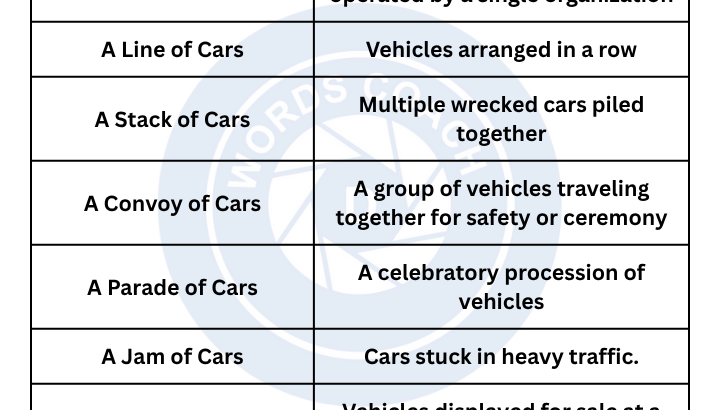
Collective noun for cars
Discover the correct collective noun for cars and how to use it. Learn terms like fleet, convoy, and traffic with meanings, examples, and grammar tips.
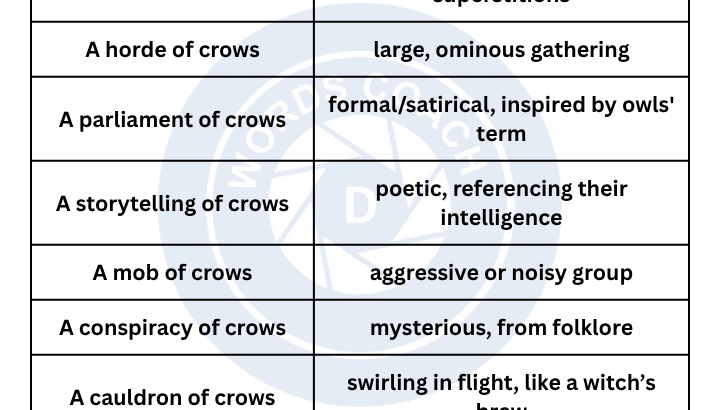
Collective noun for crows
Learn the fascinating collective noun for crows – a murder! Discover its origin, meaning, and usage with examples in this engaging grammar guide.
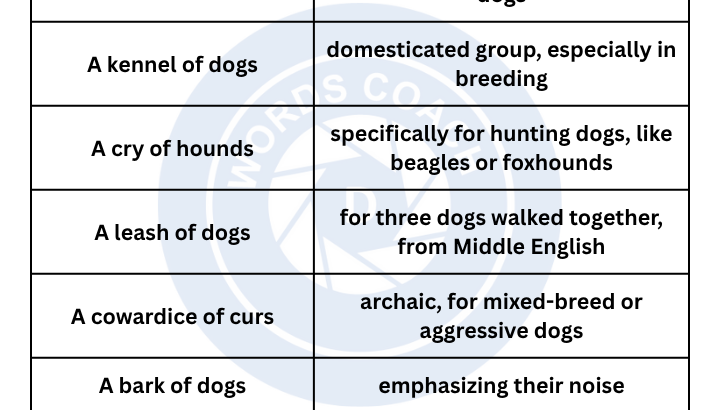
Collective noun for dogs
Discover the correct collective noun for dogs, such as a pack of dogs. Learn its meaning, usage, and other interesting group terms with examples.
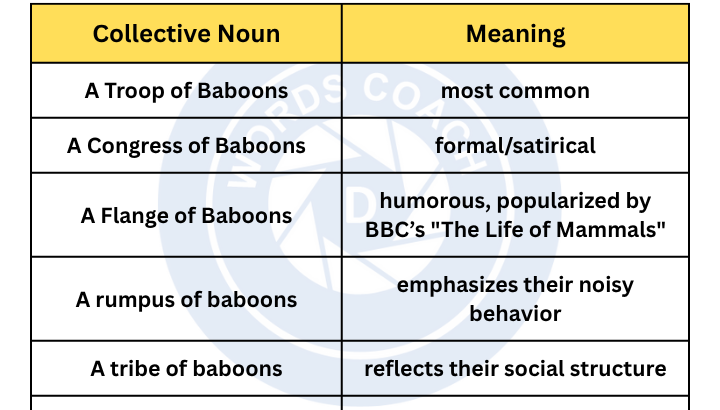
Collective noun for baboons
Learn the correct collective noun for baboons and its usage. Discover why a group of baboons is called a troop, along with examples and interesting facts.
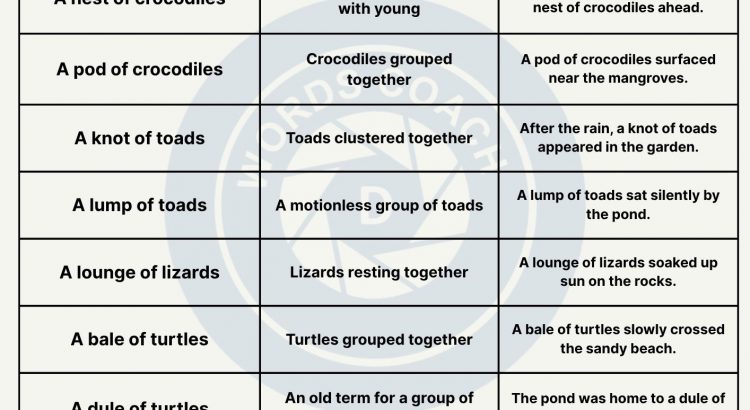
Collective Nouns for Reptiles
Discover fascinating collective nouns for reptiles like bask of crocodiles, lounge of lizards, and nest of snakes. Learn their meanings with examples and usage.
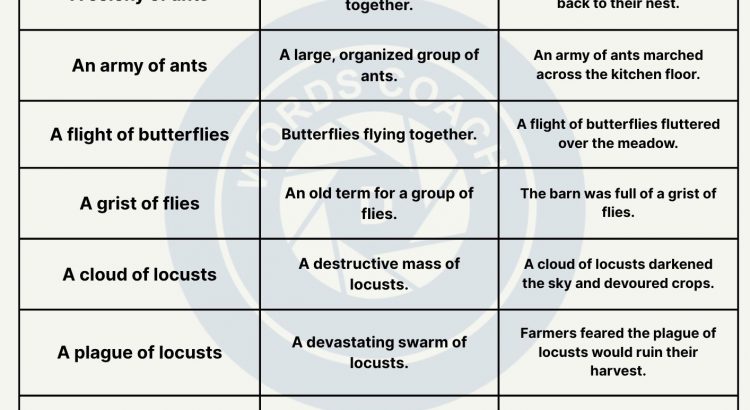
Collective Nouns for Insects
Collective Nouns for Insects. Explore the fascinating world of collective nouns for insects! Learn unique group names like swarm, flutter, and colony with examples and usage in sentences.
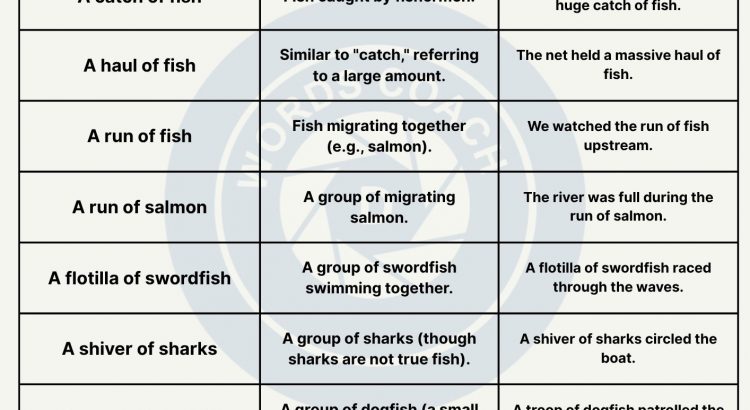
Collective Nouns for Fish
Discover the most common and species-specific collective nouns for fish, like a school of fish, a shiver of sharks, and more. Learn their meanings with examples.
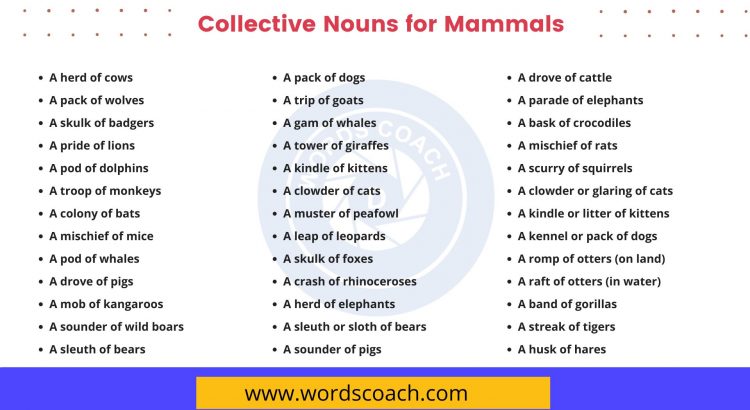
Collective Nouns for Mammals
Collective Nouns for Mammals Have you ever wondered what to call a group of lions, or how to describe a gathering of kangaroos? Welcome to the fascinating world of collective nouns special terms used to describe groups of animals, people, or things. What Are Collective Nouns? A collective noun is a word that represents a […]
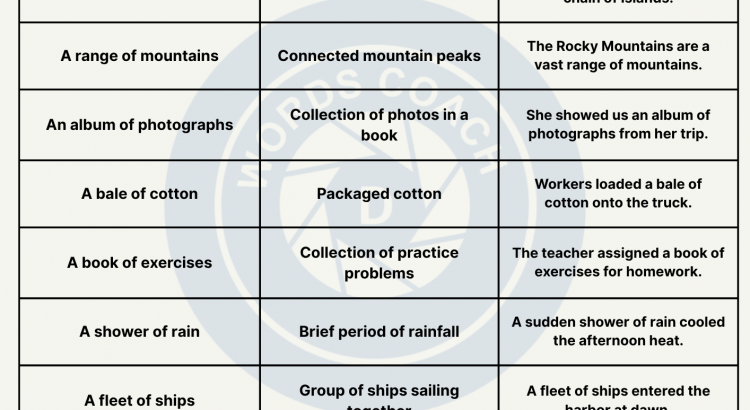
Collective Nouns for Things and Places
Collective Nouns for Things and Places. A collective noun refers to a group of people, animals, or things spoken of as a single unit.
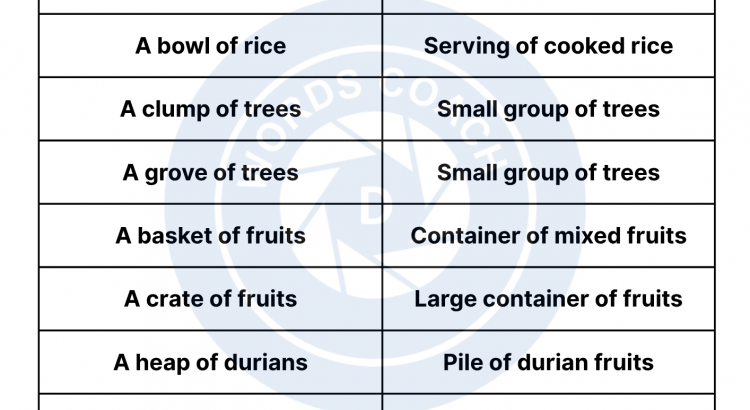
Collective Nouns for Plants
Discover the most common and poetic collective nouns for plants, flowers, and trees. Learn their meanings with vivid examples to enrich your English vocabulary.
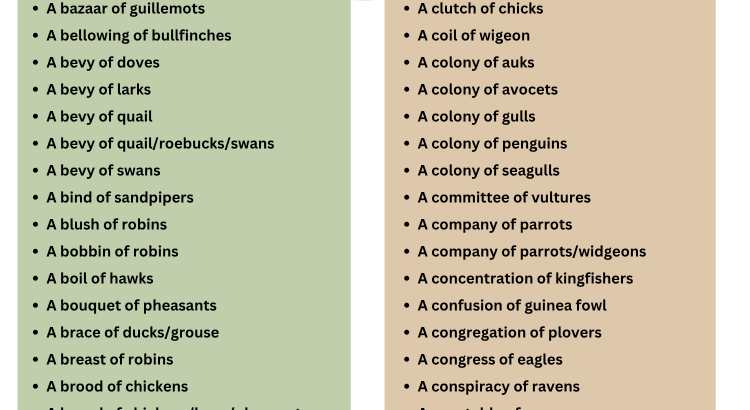
Collective Nouns for Birds
Discover a fascinating list of collective nouns for birds like a murder of crows or a flamboyance of flamingos. Learn their meanings and see example sentences to boost your English vocabulary.
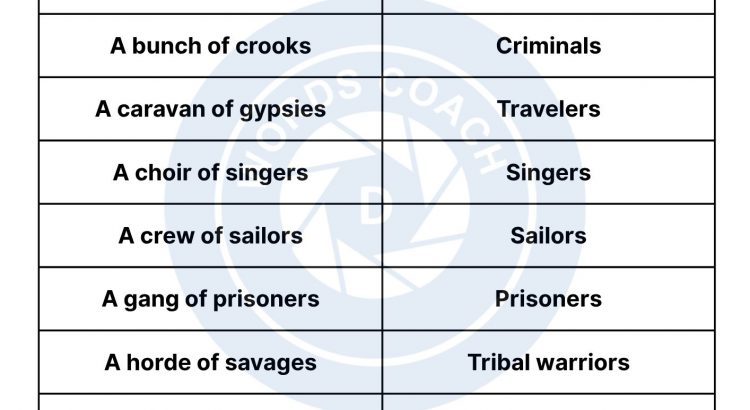
Collective Nouns for People
Explore the complete list of collective nouns for people with definitions and example sentences. Learn fun and useful group names like a team of athletes, a choir of singers, or a panel of judges.
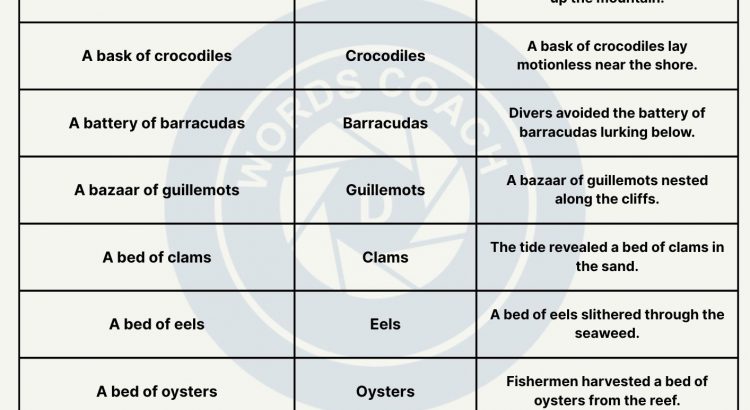
Collective Nouns for Animals
Learn 60+ collective nouns for animals with meanings and example sentences. From a murder of crows to a flamboyance of flamingos, discover fun and unique group names in English!
Compound Nouns Quiz
Compound Nouns Quiz. Test your knowledge of compound nouns! Choose the correct answer for each question.

Compound nouns for Adults
Compound nouns for Adults. This blog post delves into the benefits and diverse applications of compound nouns for adults, providing engaging examples, activities, and tips to encourage active learning and vocabulary expansion.

Compound nouns for students
Compound nouns for students. This blog post introduces the concept of compound nouns in an engaging and informative way, explaining different types, uses, and benefits for students. It encourages active participation through examples, activities, and challenges to enhance learning and vocabulary development.

Compound nouns for kids
Compound nouns for kids blog post introduces the concept of compound nouns in a fun and interactive way, using simple language and engaging examples relevant to children’s interests. It explains different types of compound nouns, their uses, and encourages children to actively participate in identifying and creating them.

Compound nouns for beginners
Compound nouns for beginners blog post introduces the concept of compound nouns in a fun and engaging way, explaining their different types, uses, and benefits in a language easily understandable by beginners. It also provides tips and activities to help readers practice using and identifying compound nouns in their own language learning journey.

What is a Noun Phrase? – Definition, Purpose, and Use
What is a noun phrase? Learn the definition, purpose, and use of this grammatical structure in English.

50+ Example Sentence Of Compound Nouns
Compound nouns are a type of noun that is made up of two or more words. In this article, we provide 50+ Example Sentence Of Compound Nouns to help you understand how they are used in English grammar.

What is a Compound Noun? – Definition, Rules, Usage, and Examples
Compound nouns are a type of noun that is made up of two or more words. They are formed by joining two or more words together, usually with a hyphen (-). In this guide, we will discuss the definition, rules, usage, and examples of compound nouns. We will also provide some tips for using compound nouns correctly.

85+ Example Sentence Of Possessive Nouns
Possessive nouns are a type of noun that shows ownership or possession. They are formed by adding an apostrophe and s (‘s) to the end of a noun. In this article, we will discuss the definition, rules, usage, and examples of possessive nouns. We will also provide 85+ example sentences to help you understand how possessive nouns are used in English grammar.

What is a Possessive Noun? – Definition, Rules, Usage, and Examples
What is a Possessive Noun? Possessive nouns are a type of noun that shows ownership or possession. They are formed by adding an apostrophe and s (‘s) to the end of a noun. In this guide, we will discuss the definition, rules, usage, and examples of possessive nouns. We will also provide some tips for using possessive nouns correctly.

51+ Example Sentences Of Collective Nouns
Here are 51+ example sentences of collective nouns:
